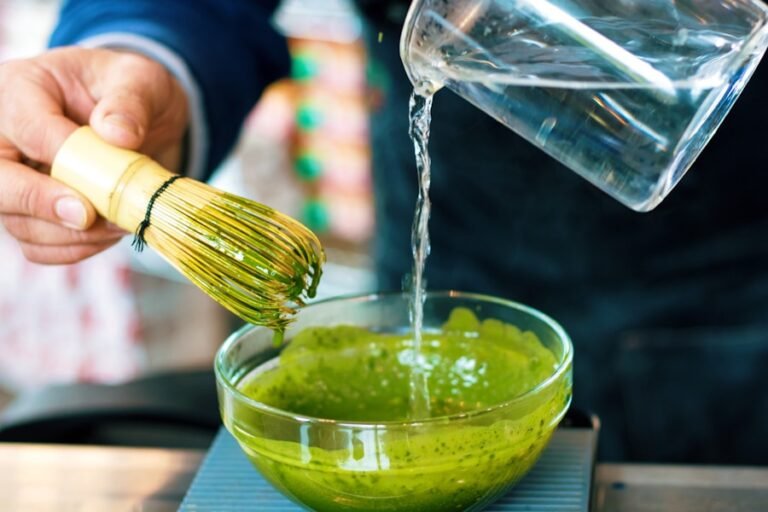Home Remedies for Viral Fever: Easy and Effective Solutions for Quick Relief
Viral fever is a common illness that is caused by a viral infection in the body. It is characterized by an increase in body temperature, which is usually accompanied by symptoms such as headache, body aches, fatigue, and weakness. The most common viruses that cause viral fever include influenza, dengue, chikungunya, and the common cold virus. These viruses are easily transmitted from person to person through respiratory droplets, direct contact, or contaminated surfaces. Once the virus enters the body, it begins to replicate and spread, leading to the onset of symptoms. The body’s immune system responds by producing fever as a defense mechanism to fight off the infection. In some cases, viral fever can also lead to complications such as pneumonia, dehydration, and organ failure if not treated promptly.
The symptoms of viral fever can vary depending on the type of virus and the individual’s immune response. Common symptoms include high fever, chills, sweating, headache, muscle and joint pain, sore throat, cough, runny nose, nausea, vomiting, and diarrhea. In severe cases, viral fever can also cause confusion, seizures, and difficulty breathing. It is important to seek medical attention if the fever persists for more than a few days or if the symptoms worsen, as it may indicate a more serious underlying condition. Understanding the causes and symptoms of viral fever is crucial in order to seek appropriate treatment and prevent complications.
Herbal Remedies for Viral Fever: Natural Solutions for Quick Relief
Herbal remedies have been used for centuries to treat various ailments, including viral fever. Many herbs have antiviral, immune-boosting, and fever-reducing properties that can help the body fight off the viral infection and alleviate symptoms. Some of the most effective herbs for viral fever include ginger, garlic, echinacea, elderberry, and licorice root. These herbs can be consumed in the form of teas, tinctures, or supplements to help reduce fever, boost the immune system, and alleviate symptoms such as headache and body aches. Ginger, in particular, has been shown to have powerful antiviral and anti-inflammatory properties that can help combat viral infections and reduce fever. Garlic is another potent herb that has been used for its immune-boosting and antiviral properties, making it a popular remedy for viral fever.
In addition to herbs, certain spices such as turmeric, cinnamon, and cloves can also be beneficial in treating viral fever. These spices have antimicrobial and anti-inflammatory properties that can help reduce fever and alleviate symptoms. Turmeric, in particular, contains a compound called curcumin, which has been shown to have antiviral and immune-boosting effects. It can be consumed in the form of turmeric tea or added to soups and stews to help reduce fever and promote healing. Herbal remedies for viral fever offer natural and gentle solutions for quick relief, without the side effects often associated with conventional medications. However, it is important to consult with a healthcare professional before using herbal remedies, especially if you are pregnant, breastfeeding, or taking other medications.
Homeopathic Remedies for Viral Fever: Gentle and Effective Treatments
Homeopathy is a holistic system of medicine that uses highly diluted natural substances to stimulate the body’s innate healing abilities. Homeopathic remedies for viral fever focus on addressing the underlying cause of the fever and strengthening the body’s immune response. Some of the most commonly used homeopathic remedies for viral fever include Aconite, Belladonna, Bryonia, Gelsemium, and Eupatorium perfoliatum. These remedies are chosen based on the individual’s specific symptoms and constitution, and are believed to help reduce fever, alleviate symptoms, and promote overall healing. Aconite, for example, is often used in the early stages of fever, when symptoms come on suddenly and are accompanied by anxiety and restlessness. Belladonna is another commonly used remedy for fever, especially when the fever is high and the individual is experiencing intense heat, redness, and throbbing pain.
Homeopathic remedies for viral fever are gentle and safe for people of all ages, including infants, children, and the elderly. They do not suppress the body’s natural immune response, but rather support the body’s ability to fight off the viral infection and restore balance. Homeopathy takes into account the individual’s physical, emotional, and mental symptoms, and aims to treat the person as a whole, rather than just the fever itself. Homeopathic remedies are available in the form of small pellets or liquid dilutions, and should be taken under the guidance of a qualified homeopathic practitioner. While homeopathic remedies can be effective in treating viral fever, it is important to seek medical attention if the fever persists or if there are signs of complications.
Ayurvedic Remedies for Viral Fever: Traditional Healing Methods
Ayurveda, the traditional system of medicine from India, offers a holistic approach to treating viral fever using natural remedies and lifestyle modifications. According to Ayurveda, viral fever is caused by an imbalance in the body’s doshas, or energy forces, which can be restored through the use of herbs, dietary changes, and other therapeutic practices. Some of the most commonly used Ayurvedic remedies for viral fever include Tulsi (holy basil), Neem, Ashwagandha, Turmeric, and Triphala. These herbs have antiviral, immune-boosting, and fever-reducing properties that can help the body fight off the viral infection and restore balance. Tulsi, in particular, is considered a sacred plant in Ayurveda and is revered for its ability to strengthen the immune system and alleviate fever and respiratory symptoms.
In addition to herbs, Ayurveda also emphasizes the importance of dietary and lifestyle modifications in managing viral fever. It is recommended to consume light, easily digestible foods such as soups, stews, and herbal teas, and to avoid heavy, greasy, and processed foods that can exacerbate the fever. Ayurvedic practitioners also recommend practicing gentle yoga and meditation to reduce stress, improve circulation, and support the body’s natural healing process. Ayurvedic remedies for viral fever offer a natural and holistic approach to treating the underlying cause of the fever and promoting overall well-being. However, it is important to consult with a qualified Ayurvedic practitioner before using Ayurvedic remedies, especially if you have underlying health conditions or are taking other medications.
Essential Oils for Viral Fever: Aromatherapy for Soothing Relief
Aromatherapy, the use of essential oils for therapeutic purposes, can be a gentle and effective way to alleviate symptoms of viral fever and promote healing. Many essential oils have antiviral, immune-boosting, and fever-reducing properties that can help the body fight off the viral infection and provide soothing relief. Some of the most commonly used essential oils for viral fever include Eucalyptus, Peppermint, Lavender, Tea Tree, and Lemon. These oils can be used in a variety of ways, such as inhaled through steam inhalation, diffused in a room, or applied topically with a carrier oil to the skin. Eucalyptus oil, for example, has been shown to have antiviral and decongestant properties that can help reduce fever and alleviate respiratory symptoms.
Peppermint oil is another popular remedy for viral fever, as it has cooling and analgesic properties that can help reduce fever and alleviate headache and muscle pain. Lavender oil is known for its calming and anti-inflammatory effects, which can help reduce stress and promote relaxation during fever. Tea Tree oil has powerful antimicrobial and immune-boosting properties that can help fight off the viral infection and support the body’s natural healing process. Lemon oil is also commonly used for its antiviral and immune-boosting effects, and can be added to water or tea to help reduce fever and promote detoxification. Essential oils for viral fever offer a natural and gentle way to alleviate symptoms and promote overall well-being. However, it is important to use essential oils with caution, especially if you have allergies, sensitivities, or underlying health conditions.
Dietary Changes for Viral Fever: Foods and Beverages to Boost Immunity
Diet plays a crucial role in managing viral fever and supporting the body’s immune response. Certain foods and beverages can help boost immunity, reduce fever, and alleviate symptoms, while others can exacerbate the fever and weaken the immune system. It is important to consume a balanced and nutritious diet that includes plenty of fruits, vegetables, whole grains, lean proteins, and healthy fats to support overall health and well-being. Some of the most beneficial foods and beverages for viral fever include ginger, garlic, turmeric, honey, green tea, and citrus fruits. These foods have immune-boosting, antiviral, and fever-reducing properties that can help the body fight off the viral infection and promote healing.
Ginger, for example, has been used for its anti-inflammatory and immune-boosting effects, and can be consumed in the form of ginger tea or added to soups and stews to help reduce fever and alleviate symptoms. Garlic is another potent food that has been shown to have antiviral and immune-boosting properties, making it a popular remedy for viral fever. Turmeric contains a compound called curcumin, which has been shown to have antiviral and immune-boosting effects, and can be added to curries, smoothies, or golden milk to help reduce fever and promote healing. Honey is known for its antimicrobial and soothing effects, and can be added to warm water or herbal teas to help reduce fever and alleviate sore throat. Green tea is rich in antioxidants and can help boost immunity and reduce inflammation, while citrus fruits are high in vitamin C, which can help support the immune system and reduce fever. Dietary changes for viral fever offer a natural and effective way to support the body’s immune response and promote overall well-being.
Home Remedies for Viral Fever in Children: Safe and Gentle Treatments
Viral fever is common in children and can cause discomfort and distress for both the child and the parents. It is important to use safe and gentle home remedies to alleviate symptoms and promote healing in children with viral fever. Some of the most effective home remedies for viral fever in children include lukewarm sponge baths, hydration, rest, and herbal teas. Lukewarm sponge baths can help reduce fever and provide soothing relief for children, especially when the fever is high and the child is feeling uncomfortable. It is important to use lukewarm water and avoid cold water, as it can cause shivering and increase the fever. Hydration is crucial in managing viral fever in children, as it helps prevent dehydration and supports the body’s natural healing process. It is recommended to offer small, frequent sips of water, herbal teas, or electrolyte solutions to keep the child hydrated.
Rest is also essential for children with viral fever, as it helps conserve energy and promote healing. It is important to create a quiet and comfortable environment for the child to rest, and to encourage naps and early bedtimes. Herbal teas such as chamomile, ginger, and lemon balm can help reduce fever and promote relaxation in children. These teas can be sweetened with honey to make them more palatable for children. It is important to consult with a healthcare professional before using herbal remedies for children, especially if they are under the age of two or have underlying health conditions. Home remedies for viral fever in children offer safe and gentle treatments that can help alleviate symptoms and promote healing, without the side effects often associated with conventional medications.
Lifestyle Tips for Managing Viral Fever: Rest, Hydration, and More
In addition to using natural remedies, certain lifestyle modifications can help manage viral fever and promote healing. It is important to prioritize rest and relaxation, as it helps conserve energy and support the body’s natural healing process. Resting allows the body to focus its resources on fighting off the viral infection and restoring balance. It is recommended to take naps, go to bed early, and avoid strenuous activities during viral fever. Hydration is also crucial in managing viral fever, as it helps prevent dehydration and supports the body’s immune response. It is important to drink plenty of water, herbal teas, and electrolyte solutions to stay hydrated and promote healing.
In addition to rest and hydration, it is important to maintain a comfortable and supportive environment during viral fever. It is recommended to create a quiet and peaceful space for rest, and to avoid exposure to extreme temperatures, loud noises, and strong odors. It is also important to practice good hygiene, such as washing hands frequently, covering the mouth and nose when coughing or sneezing, and avoiding close contact with sick individuals. These lifestyle tips can help manage viral fever and promote overall well-being, while reducing the risk of spreading the infection to others. It is important to seek medical attention if the fever persists or if there are signs of complications, as it may indicate a more serious underlying condition.
Precautions and When to Seek Medical Help for Viral Fever
While natural remedies and lifestyle modifications can be effective in managing viral fever, it is important to take certain precautions and seek medical help when necessary. It is recommended to monitor the fever and symptoms closely, and to seek medical attention if the fever persists for more than a few days, or if the symptoms worsen. It is also important to seek medical help if the fever is accompanied by signs of dehydration, such as dry mouth, decreased urination, and dizziness. In addition, it is important to seek medical attention if the fever is high and persistent, especially in young children, the elderly, and individuals with underlying health conditions.
It is also important to take precautions to prevent the spread of the viral infection to others. It is recommended to stay home from work, school, and social gatherings until the fever has subsided and the individual is no longer contagious. It is important to practice good hygiene, such as washing hands frequently, covering the mouth and nose when coughing or sneezing, and avoiding close contact with sick individuals. These precautions can help reduce the risk of spreading the infection to others and promote overall well-being. It is important to seek medical attention if the fever persists or if there are signs of complications, as it may indicate a more serious underlying condition.
Preventing Viral Fever: Tips for Boosting Immune System and Avoiding Infection
Preventing viral fever involves taking proactive measures to boost the immune system and avoid infection. It is important to maintain a healthy and balanced diet that includes plenty of fruits, vegetables, and whole grains, as well as staying hydrated by drinking plenty of water. Regular exercise can also help boost the immune system, so it is important to stay active. Additionally, getting enough sleep and managing stress levels are crucial for a strong immune system. Avoiding close contact with sick individuals and practicing good hygiene, such as washing hands frequently and covering the mouth and nose when coughing or sneezing, can help prevent the spread of viral infections. Finally, staying up to date on vaccinations, such as the flu shot, can provide added protection against viral fevers.









